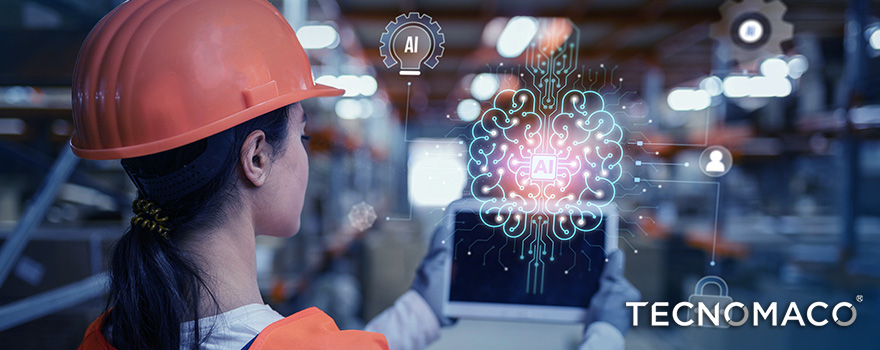
Centrality of the individual, sustainability and resilience. These are the pivotal points identified by the European Union for the development of Industry 5.0, a manufacturing paradigm more focused on the well-being of the individual, society and the Planet.
The factory of the future, according to the EU’s vision, will be increasingly smart. It will harness the potential offered by technological innovation, particularly Artificial Intelligence, to help create an ecosystem marked by the circular economy and low environmental impact, capable of ensuring prosperity, job growth and better quality of work.
What is intended as Industry 5.0
Industry 5.0 refers to a business model focused on human-machine cooperation (Collaborative Industry), which places the worker and the community in which he or she lives at the centre of the production process. In this view, innovation is no longer simply a competitive advantage, but a driving force for sustainable development. In the 5.0 organisational model, new technologies are used for the purpose of complementing human capabilities, not replacing them, to create an innovative work environment and achieve better quality of production processes.
“After the last two ‘industrial ages’ – the Age of Automation (Industry 3.0) and the Digital Age (Industry 4.0) – where smarter and smarter connected devices and computer technologies have automated manufacturing processes and workflows, the next ‘age’ – the Age of Augmentation (Industry 5.0) – will be focused on the cooperation between human intelligence and cognitive computing and on treating automation as a further enhancement of the human’s physical, sensorial, and cognitive capabilities” (2020, Longo, Padovano, Umbrello).
Transition 5.0: an opportunity for the EU
A natural evolution of automation and digitization processes, Transition 5.0 takes into account not only production efficiency, but assesses the real contribution that businesses can provide to global society, to create “sustainable, circular and regenerative economic value.” This is a necessary transformation that Europe intends to lead by asserting its industrial leadership skills.
“Industry must become the engine of Europe’s systemic transformation,” states the report Industry 5.0: A Transformative Vision for Europe, published in January 2022. A true statement of intent, with which the EU is preparing to face compact momentous challenges such as climate change and exponential population growth. With a view to competitive sustainability, in which industry is a driving force for system transformation and regeneration of the Planet.
Quality and Sustainability in the 5.0 Era
According to industry studies, the human-centric approach of Industry 5.0 will have an extremely positive impact on the quality of work, creating new positions, more specialised skills and better conditions for employees. Machines will be given the heavy and repetitive tasks, leaving workers to focus on conceptual tasks, which involve critical thinking and creative problem solving. Close cooperation between machines and humans will also improve the quality of production processes, giving companies the ability to increase production while making it flexible and adaptable in real time to market changes. To make products that are highly personalised and tailored to the specific needs of consumers, while fully respecting the environment.
The Impact of AI in Pharma
The pharmaceutical industry, which has been cultivating the relationship between innovation and sustainability for years, is already embracing change. Between 2014 and 2023, investment in AI grew dramatically, reaching $60.3 billion. The AI in Drug Discovery platform, created by research agency Deep Pharma Intelligence, provides an in-depth overview of the many entities that witness the influence of AI in drug discovery globally: 800 companies, 1,880 investors, 90 corporations and 50 hubs.
Artificial Intelligence is outlined as a valuable ally for drug research and scientific experimentation, capable of cutting costs and streamlining the long timelines before new pharmaceuticals are brought to market. With the goal of creating products increasingly geared toward personalised medicine, a targeted therapeutic approach that takes into account the patient’s genetic characteristics, environmental conditions and lifestyle.